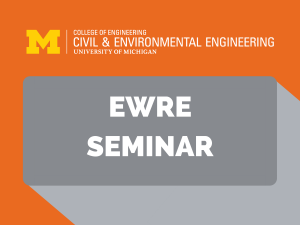Presented By: Civil and Environmental Engineering
Free-living amoebae in drinking water networks: a treasure trove of intracellular (novel) bacteria
Vincent Delafont

Free-living amoebae (FLA) are unicellular eukaryotes, ubiquitous in natural and man-made water environments. There, FLA play important roles in regulating microbial populations, as they feed on bacteria and other small eukaryotes by a mechanism involving ingestion by phagocytosis. It is thought that this predatory pressure favored – on multiple occasion – the adaption of several microorganisms (mainly bacteria) to the intracellular lifestyle, by stimulating the arising of resistance mechanisms against phagocytosis.
Thus, we aim to study FLA and their associations with microorganisms, as it stands out as pertinent model not only for better understanding the establishment of symbioses, but also for decrypting mechanisms employed by several bacterial pathogens thriving within eukaryotic cells.
Thus, we aim to study FLA and their associations with microorganisms, as it stands out as pertinent model not only for better understanding the establishment of symbioses, but also for decrypting mechanisms employed by several bacterial pathogens thriving within eukaryotic cells.